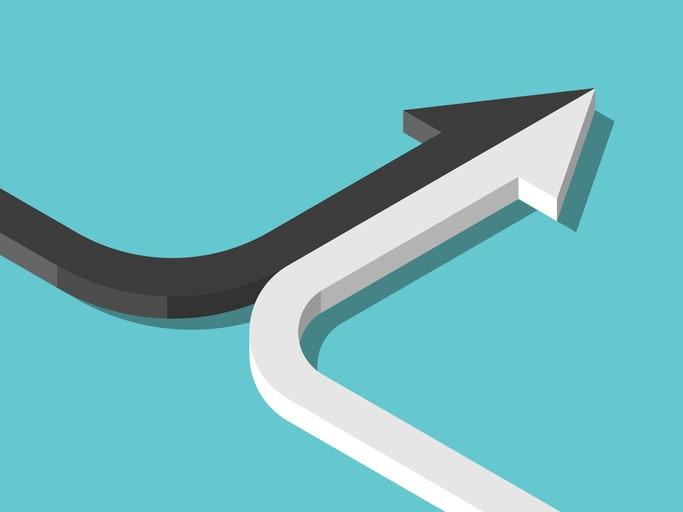
Using the ‘pick three’ method to avoid burnout in higher education
“I’ll sleep when I’m dead,” I would often say at college when I’d pulled an all-nighter, got up early to prepare for an exam or watched the sun rise or set at my job as a front desk attendant at the university gym. Early in adulthood, I developed a priority system that wasn’t even a system: sacrificing my own well-being to get things done operated more like a reflex. Not only was I hurting myself with my behaviour but, when I look back, taking pride in it might have also negatively influenced those around me.
Wellness in the margins
When I started my doctoral programme in higher education, I realised that my experience of swapping wellness for work was an example of an unacknowledged epidemic in higher education. I scrapped my original dissertation topic and instead investigated why universities might inadvertently promote a culture of nourished minds and malnourished bodies. Among many takeaways, an overarching theme emerged: well-being is something to be considered in the margins of time between more important and worthwhile tasks, but it certainly isn’t something one should plan their days around.
To make matters worse, research suggests that the habits we form in early adulthood are highly influential throughout our lives, which may be why so many of us struggle with work-life balance when strategies for such balance are not learned early on.
- Bad news, kids (and academics): the magical motivation fairy doesn’t exist
- The ‘25 method’ for forming a writing routine when you have limited time
- Tame the to-do list and manage an academic workload
Pick three priorities each day
Randi Zuckerberg, the author of Pick Three: You Can Have It All (Just Not Every Day), argues that the secret to a well-balanced life is being lopsided each day. In a given 24-hour period, one can accomplish only so many tasks, so she encourages her readers to select three out of five priorities and to ensure that they are nurtured: work, sleep, family, friends, fitness (or other priorities such as spirituality, meditation, self-improvement and so on).
Zuckerberg normalises imbalance on any given day but encourages readers to tackle all five priorities at some point through the week. The primary benefit of picking three priorities each day is that it forces us to make conscious choices that lead to a balanced life and help us build the necessary resilience to tackle our hard jobs.
Operationalising ‘Pick Three’
As I have applied this concept to my life as a senior leader at Colorado State University Global, in times when I’ve suffered from symptoms of burnout, there was always one common characteristic: I didn’t pick three, four or five things that mattered to me; I picked work. To ensure that I’m focusing on the right priorities in both my professional and personal life, I carry out these four practices:
- This isn’t for everyone, but I work six days a week: Monday through Saturday. This allows me the flexibility to be present at my kids’ evening activities even with a work schedule that is chock-full of meetings and resultant action items. Instead of working late on weekdays to get things done, I “pick work” as one of my three priorities on Saturday mornings and try to finish it up by breakfast time.
- Fitness is a high priority for me, so it cycles in at least four days each week. However, my score for achieving this priority is a “1” or a “0”, meaning that even 10 minutes on the exercise bike counts, and I save longer workouts for weekends when I have more time.
- At the end of the week, I reflect on the following question: “Which relationships need improving right now?” Then, I make a plan to better connect with them. As an example of how little time this can take, I leave voice texts for an equally busy friend that she can listen to at her leisure; they take only a minute for me to record, but it is a minute that makes a difference in our relationship.
- I do still sacrifice sleep on occasion, but never for two nights in a row. If you research the health benefits of sleep, you will learn that it is the single most important thing you can do for both your health and productivity – and that it is not to be sacrificed often.
At its best, burnout is self-sacrifice, but at its worst, it can degrade the health and well-being of families, departments and organisations, particularly when the leaders who should be role-modelling a balanced lifestyle are regularly burning the candle at both ends. Those of us who are later in our careers can attest that the excitement of a work promotion cannot be appropriately enjoyed when the other areas of our lives are left malnourished. As senior leaders in higher education, we have an opportunity to role-model prioritising what matters to us, which includes, but is not limited to, crossing items off a to-do list.
Sandy Jones serves as vice-president of strategic engagement at Colorado State University Global, where she drives the university’s stakeholder partnerships, brand awareness and enrolment experience.
If you found this interesting and want advice and insight from academics and university staff delivered direct to your inbox each week, sign up for the THE Campus newsletter.
Do you work in US higher education? Join us in Los Angeles on 9-10 November at THE Campus Live US, where we will unite academics and senior administrators from institutions across the country to discuss how to take on the sector’s shared challenges. Register to join.




